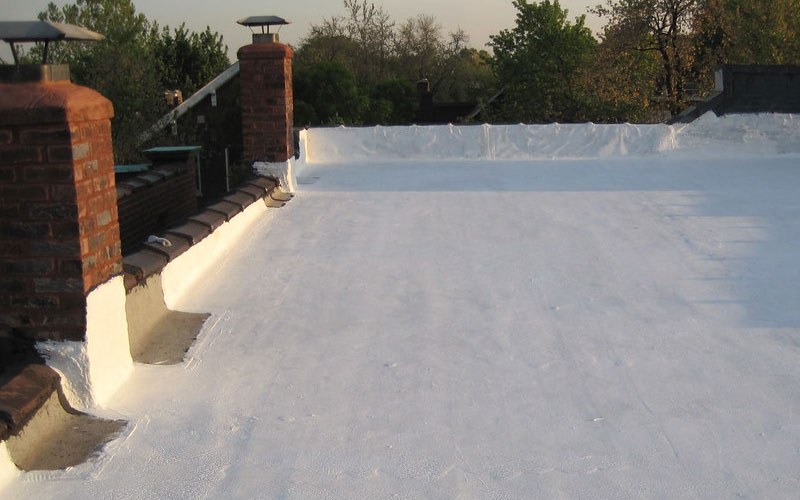From dirt and debris to wind and rain, roofs have to be able to stand up to a lot. Sun exposure is one of the most hazardous issues for roofs. Over time, exposure to the sun’s ultraviolet (UV) rays can damage the roof. The heat the roof absorbs can also drive up the temperature inside the building, which can lead to high utility bills. Thus, it’s in every homeowner’s interest to have a protective roof coating that reflects the sun’s light and heat.
Roof coatings that provide a high level of reflectivity are called cool roof coatings, since they help homeowners keep their houses cooler. If you need to find the right type of roof coating for a customer, then it’s smart to know as much as possible about reflectivity and the role it plays in protecting a roof.

What is solar reflectance?
Solar reflectance means how well a roof coating keeps a building cool by reflecting the sun’s radiation. It is measured by a standard called the Solar Reflectance Index (SRI). If a roof has a high SRI, then it’s likely to stay cool. If it has a low SRI, then it’s likely to become extremely hot during the daytime.
What is thermal emittance?
When the sun hits a roof, the roof’s surface absorbs heat. If a homeowner is trying to keep their home warm, then absorbing that heat can help to lower their energy costs. Thermal emittance simply means how well a building releases that absorbed heat. If a roof has low thermal emittance, for example, it means that the roof is retaining much of that heat.
What makes a roof reflective?
There are a number of ways to make roofs reflective. Roofs with white-colored surfaces are extremely reflective, for example. Roof coatings with a special reflective coatings will also effectively protect a roof from the sun.
How much of a difference can reflective roof coatings make?
Reflective roof coatings can make it much easier for a homeowner to control the temperature inside their home, which means that they will not have to spend as much on their monthly energy bills. The energy saved by this factor can also help a household lower its carbon footprint. In addition, reflective roof coatings help to preserve the roof. If a roof isn’t being undermined by the sun’s UV radiation, then its materials are likely to last longer, and the roof will not need to be repaired as often. Thus, installing a reflective roof coating can significantly benefit a customer in the long run.
Does every roof coating need to have high reflectivity?
When you are picking out a roof coating for a customer, consider how much sunlight the building gets every day. For example, suppose that shade protects the building all day long. If that’s the case, then reflectivity may not be as important a factor in deciding on a coating. If the sun shines on the roof from dawn till dusk, on the other hand, then you should choose a roof coating with a high SRI. That’s why it’s important to consider every customer’s specific needs.
